Chickens need to be tested for worms regularly. If there is a build up of worms in their digestive system that can cause health problems. Keeping chickens in a fixed area as so many of us do, where they are grazing the same piece of ground continually is the worst case scenario as they will be contaminating the ground and picking up worm eggs as they are feeding. Infected hens shed thousands of eggs in their faeces onto the ground and so, the problem gets worse.
How can you tell if they need worming? By using a Worm Count Kit! Using a kit means you’re not worming chickens unnecessarily.
Wormers
I use a product containing Flubendazole when necessary to worm my chickens. This is a proven chemical wormer that kill all common worms and their eggs in the chicken and is the only product licensed for use in chickens feed. In between these times, I use Verm-X which has approval for use in Organic systems – now this is a herbal product which works in a different way – you will need to feed this to your hens every month for it to work. The really great thing about Verm-X is that being herbal, it contains many ingredients that are good for your birds so it can improve their overall health.
Good Husbandry
Practising good husbandry techniques is key, in between worming chickens. We try to rotate our birds grazing area every month so that they get some fresh grass but so the ground also gets to rest (this is one of the major principles in Organic farming) and we keep the grass mowed short which allows the ultra-violet light from the sun to reach droppings and kill off worm eggs.
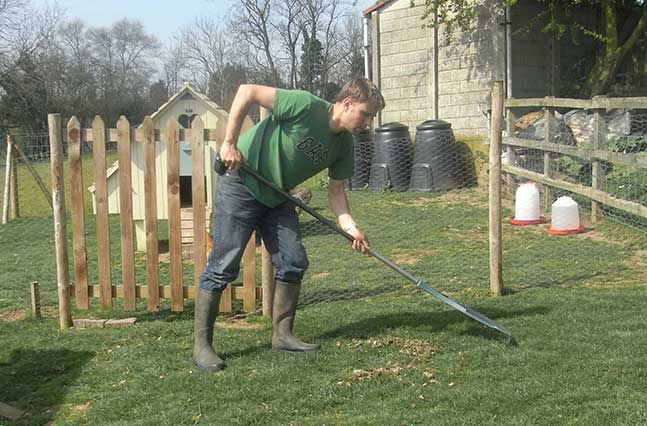
Cleaning a chicken run by raking droppings during dry weather.
General cleanliness is of course important so if your chickens scratch around in their own droppings, you should be thinking about cleaning them up, rather than hitting them with a regular dose of chemicals.
Bad Infestations
If you have a bad infestation of worms, you do need to keep in mind that eggs deposited on the ground will re-infect your birds and it is necessary to repeat the treatment before the eggs hatch and grow into adult worms to lay more eggs. This takes 3 weeks for most common worms carried by chickens so I would re-treat after 3 weeks if I suspect a particularly bad case of worms.
Where external parasites are found on the bird (such as Northern fowl mite or lice) a systemic wormer / pour on product containing Ivermectin is useful. This kills a more limited range of worms. Victoria Roberts Diseases’s of Free Range Poultry says it excludes tapeworm and fluke, but these are less common in chickens. It isn’t licence for use on poultry so you would need to go to your vet for their advice.
Please remember this should not replace the advice of a qualified veterinarian who can advise you about worming.
Do you have any advice on worming? Please leave me a comment below.

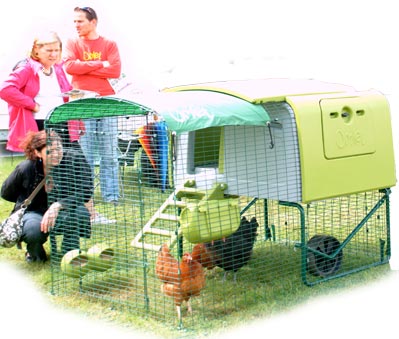

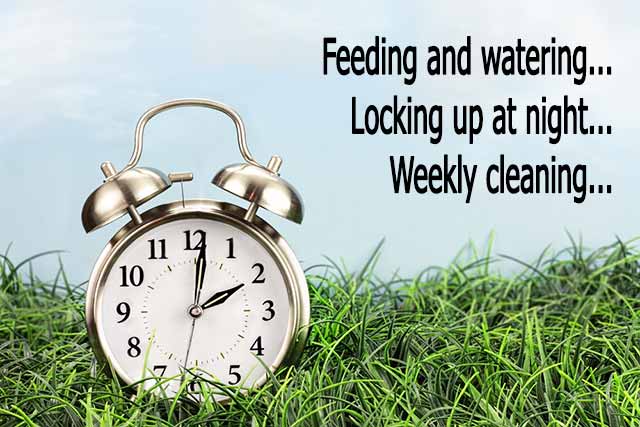
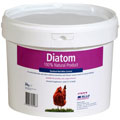
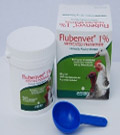
Hi am trying to worm my six chickens but they won’t eat the pellets as been brought up on mash. I have taken all other food away apart from the petrels but worry they are going to be hungry how else can I worm them ?
You could crush the pellets so they look more like a mash? Keep them hungry and remove all other feed and treats whilst worming them.
Hi, I have a selection of hens, standard reds, and some old english game birds. They have all intergrated well, i also had a cockrel but i unfortunately found him dead the other day, he was rather ‘hen pecked’!
I have a question; my older hens eat layers, and my game birds successfully hatched 6 chicks, now 10 weeks, and they look after them themselves very well, another hen had chicks about week – 10 days ago and the 4 new chicks are all being very well cared for.
My problem is – the chick crumb feed i put in is gobbled up by all the chickens! they love it, but it gives them a runny poo! I ve also started introducing growers pellets, which is also gobbled by ALL except the tiny chicks.
Is there anything i can put in, that they can all eat safely? I don’t have facilities to remove the chicks from the hens.
Your advice will be appreciated. Thanking you in advance,
Roxy
Hi Roxy,
The way to stop the hens eating the crumbs or growers is to put a plank of wood on props about the size of a brick at each end, big enough for the chicks to walk under to get the food but not big enough for the hens to get under.
Another alternative is to use a wooden ‘box’ with one side made from 1-2 inch pieces of wood spaced apart the size the chicks can fit through to go in and get the food but too small for the hens to get into.
Old fashioned ‘broody coops’ had bars on the front like this that let the chicks pass through but kept the hen inside (or outside).
My chickens will not eat Flubenvet layer pellets i got them on prescription have contacted my source and was told they will when they are hungry this is the second day they must be starving should i cut out treats my girls are not happy
Hi, I recently got hens, but I’m worried about what products to use. Should I use Verm-x as a wormer? I heard Flubendazole can only be prescribed, so how do I get it? Should I first check for symptoms and then order a test to see if they are actually worming? Can I just have some advice in general on how to deal with it?
I would use a worm egg count kit (try Westgate Labs) or see the poultrykeeper website for more information, then IF they have worms you can still buy Flubenvet Layers pellets (e.g a small 5Kg bag on Amazon) to treat your hens.
In between times, you could take a holistic approach and use Verm-X. If you test for worms every Spring and Autumn, then you know this approach is working and you don’t need to use a chemical wormer.